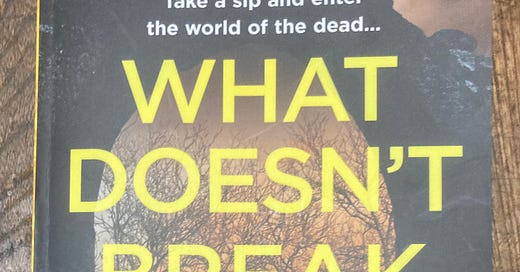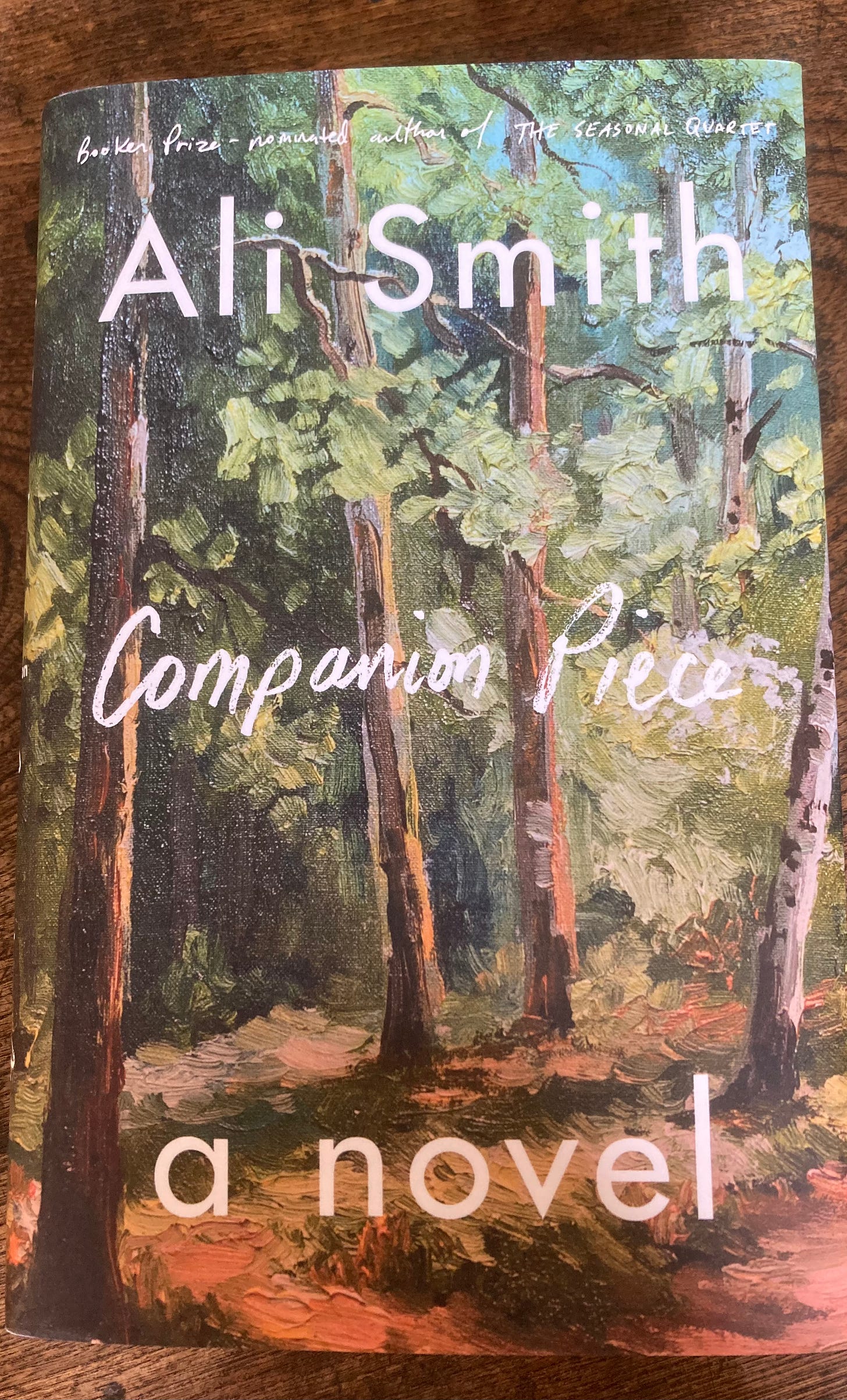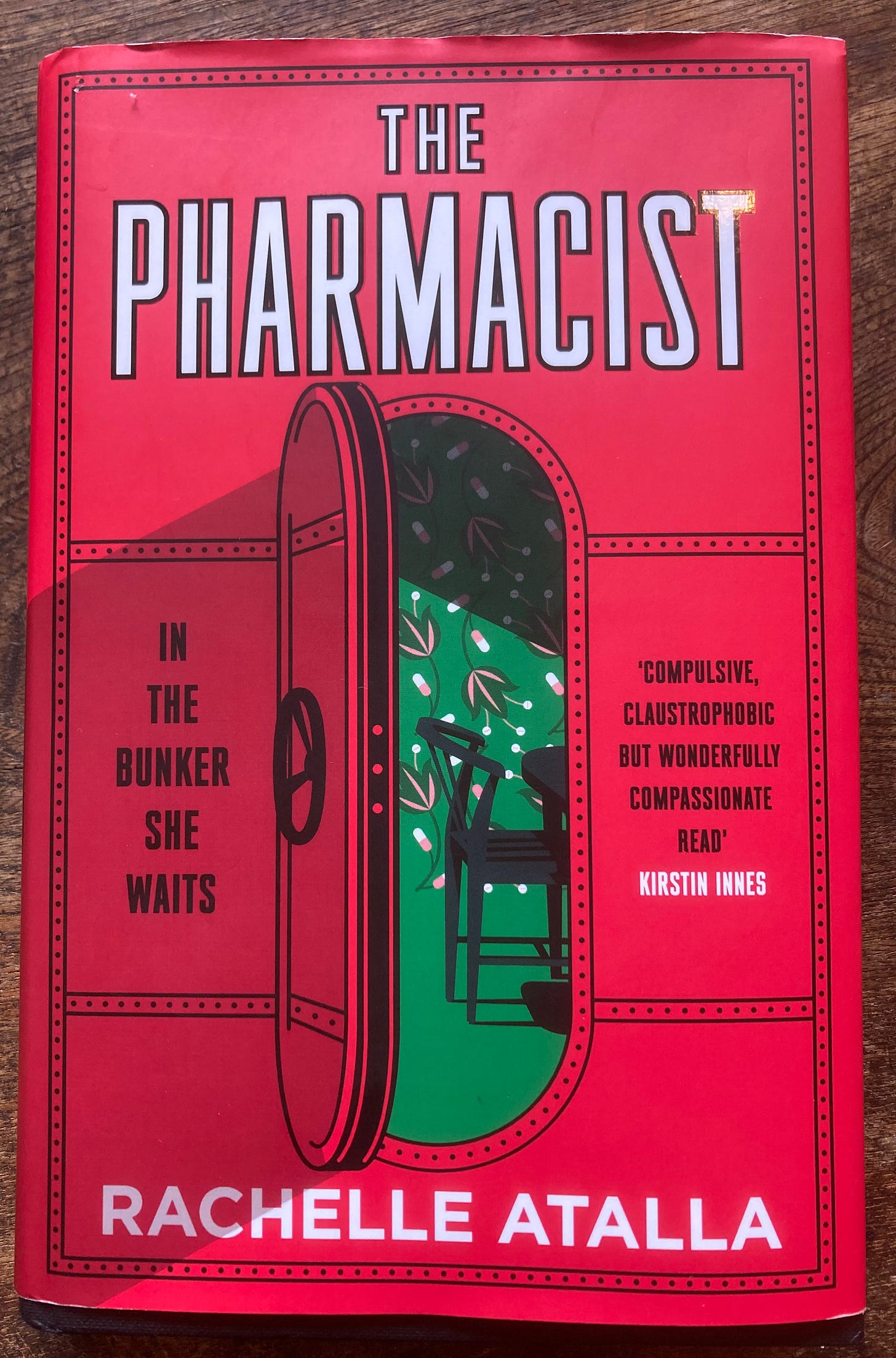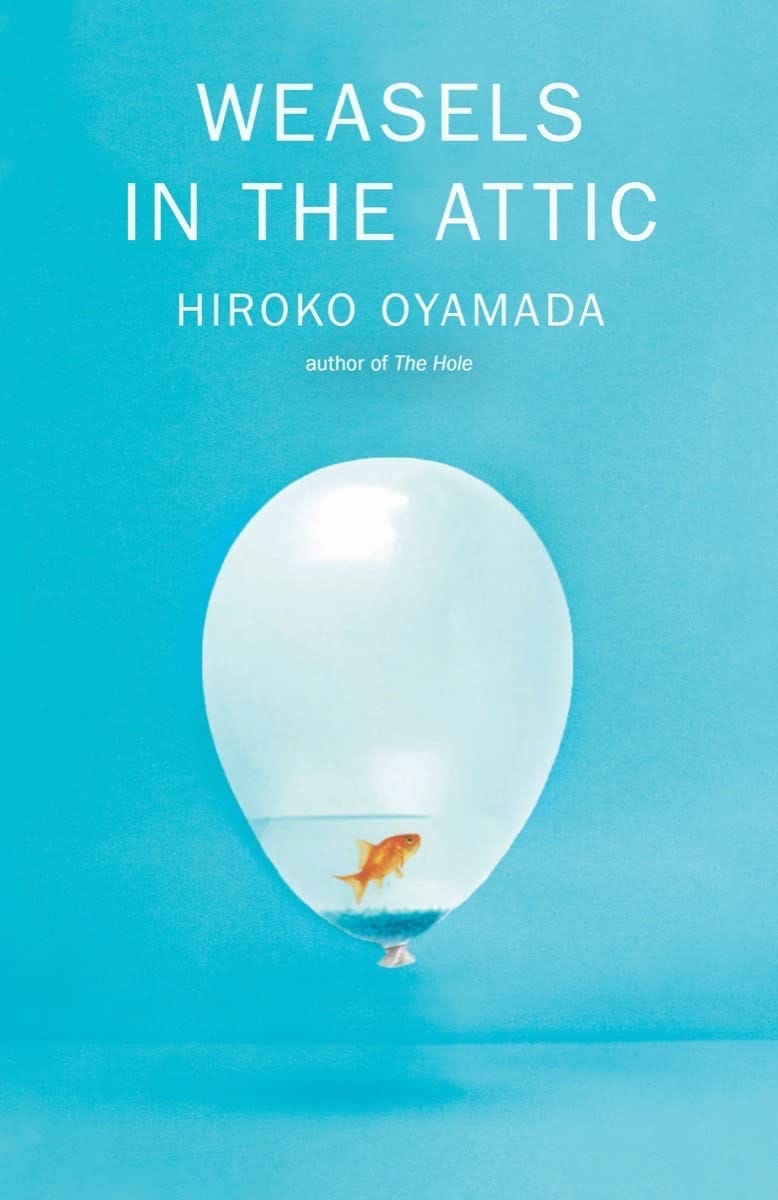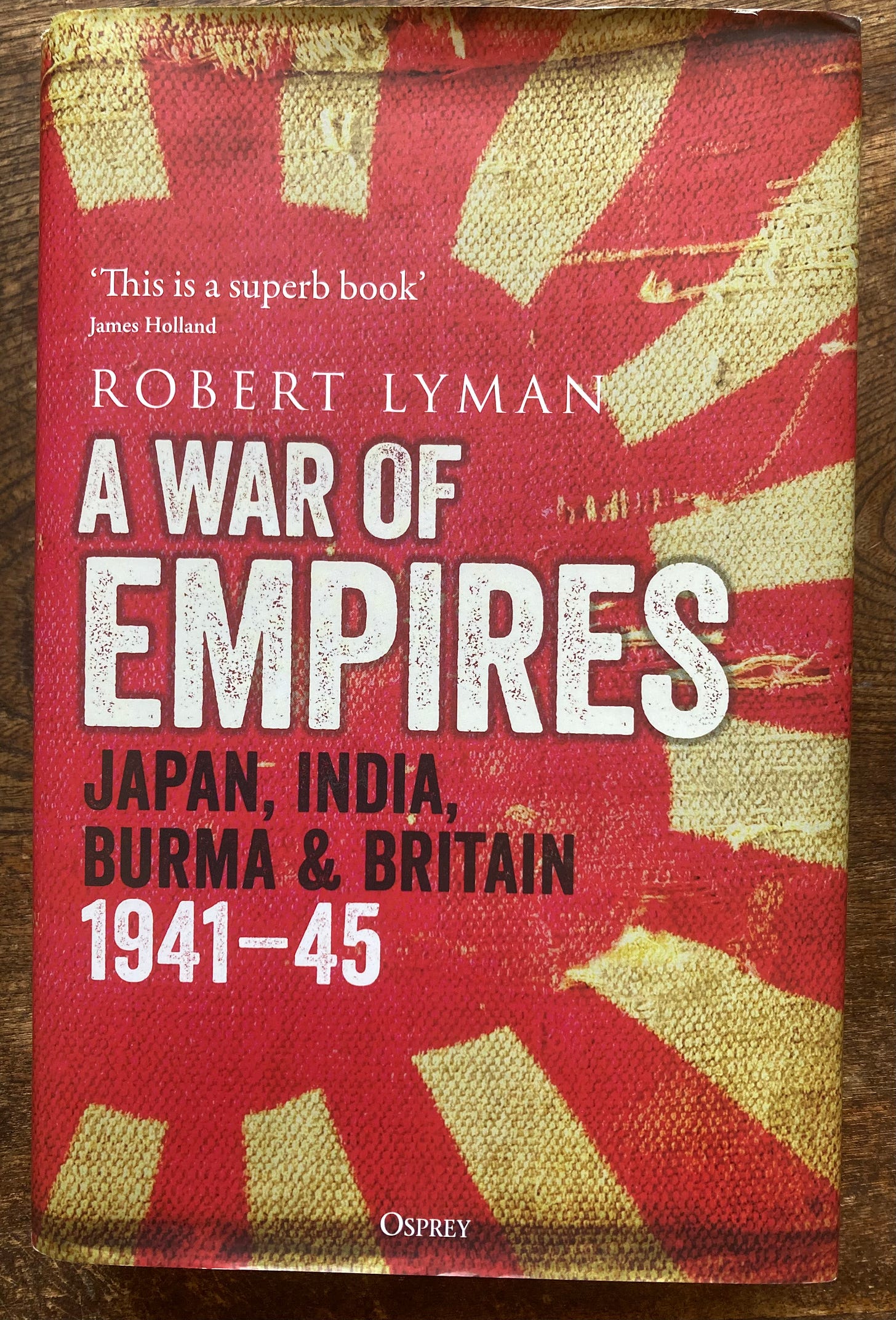August Reads
Nice double meaning. Not just what I read in the eighth month, but a value judgement: some truly august books.
First up was What Doesn’t Break Us by Helen Sedgwick. This rounds off her Burrowhead mystery trilogy and I assume after this ending that she’s never going to return to the village. I mean… how would you even? No spoilers, but this ain’t no ordinary rural village, hidden secrets, local murders for local people kind of thriller. It’s soooo much weirder than that, in such a good way. A little bit too much closure for my tastes but I’m usually in the minority on that score (though one decision had me shouting at the character). I’m really curious to see what Sedgwick does next as she seems to reinvent herself every few books.
Next came Ali Smith’s Companion Piece. Those who know me know how important Ali Smith is to me as a guide to what is possible and what is irrelevant in writing. Her prose, her way of storytelling, the things she can do with a single detail and her engagement with the modern world is the Platonic ideal of writing for me, a path I can never manage to walk but which keeps my compass pointing true. Companion Piece, then, hit the spot. A tale of two plagues, drawing moving and mischievous parallels between Corona and the Black Death, but not in the obvious way. After the Seasonal Quartet she’s in a groove with contemporary issues and how they impact real lives, but the plague narrative made me yearn for her to take a step away from the present and its infuriating characters. Smith has never really done historical fiction and those sections showed how glorious it could be.
After a bit of a gap it was back into my stack of everything Nordisk Books has ever published, with Duncan J. Lewis’s translation of Eline Lund Fjæren’s Fixed Ideas. This is another short novella split into even shorter chapters, something of a running theme with Nordisk’s translations, which means I rattled through it on a lazy afternoon. Telling the story of a burgeoning relationship from both perspectives, this is whatever the opposite of a romantic comedy is. Two lonely melancholics - he a critic, her a journalist - whose relationship develops despite neither of them really being all that into it. As a portrait of how people settle it is moving and slightly horrifying, but beautifully written. Everything Nordisk publishes has a similar clear, direct style, eschewing any unnecessary backstory or description, which is what I love reading. I’m not sure if this is a reflection of Lewis’s own tastes or a trend in Scandinavian literature, but damn if it isn’t right up my street.
Muggles (non-publishing people) often underestimate the power of word of mouth and simple reader to reader recommendations either in person or online. Nothing - literally nothing - sells more books than a quick tweet, a casual mention, or a good old chat about recent reads. Let me use Rachelle Atalla’s The Pharmacist to illustrate. Rachelle wrote a screenplay for a short film that a friend of mine directed (Trifle, fact fans). He tweeted that her debut novel was coming out and that it was good. On the back of that, without any idea what the book was about, I ordered my copy. Got it. Read it. Loved it. Now I’m on here passing on the word again. You want to help a writer out? Post about their books - you cannot buy that kind of publicity. The novel itself is an original take on the post-apocalyptic sci-fi trope. Wolfe is the titular drug dispenser trapped underground after an unnamed disaster befell the world. Her job brings her into contact with the entire population, as fighting illness is a huge part of their ongoing survival. This puts her in prime position to witness the slow unravelling of the community but also brings her unwanted attention.
This was an advanced review copy kindly donated by the publisher but unfortunately someone beat me to the punch at Japan Times. I’ve reviewed both of Oyamada’s previous translations for JT, so it’s only fair to let someone else have a go. This is a slight book, even by the short standards of Japanese literature, but it packs a punch. Three linked stories from different points in the development of the relationship between the narrator, his friend, and their respective wives. As always with Oyamada, it’s beautifully written (and translated by David Boyd) but much more straightforward (seemingly) than her two other novellas, Factory and The Hole. That said, I had to reread the final story twice to piece together hints that passed me by the first time, so it’s not that straightforward. Even now, I’m not entirely sure I’m interpreting the ending as intended - but that’s the joy of literature, innit. Buy this, so they translate more of them.
Issue 11 of the Tokyo Poetry Journal dropped (or rather was handed to me during a night out in Tokyo) and it’s another great edition featuring regular contributors like Taylor Mignon, Jordan A. Y. Smith and Barbara Summerhawk, poems in English, poems translated from Japanese, poems in Japanese, Spanish and English, poems in Japanese and English at the same time, poems with QU codes, poems with images, everything you could possible want in a journal of modern poetry. Particular standouts for me were Alvin Wong, Zoria Petkoska K., Seira Duncan, Kana Hozoji, Misumi Mizuki (translated by Andrew Gebert), and Ibaragi Noriko (translated by Andrew Houwen & Peter Robinson). If you’re not subscribed to ToPoJo, get on it (that said, my copy of issue 8 seems to have gone AWOL. Anyone?)
Finally, I finished Robert Lyman’s A War of Empires, a doorstop of a history which I actually began in July. I encountered Lyman on Al Murray and James Holland’s We Have Ways podcast talking about the Burmese front in WW2 and the Indian experience more generally and realised that I’d never really delved into that side of things. Most of what I’ve read about the war in Asia has been about domestic Japan pre- and post-war, and about the Pacific front, so this was something of a corrective. The focus is mainly on the British perspective, particularly quite how inept and blinkered most of the decision makers were, but there are interesting insights into Japan’s manipulation of nascent nationalist desires in Britain’s Asian colonies to disrupt defenses and, in some cases, recruit soldiers to expel the British. The general thrust is reclaiming the liberation of Burma as an Indian/Burmese story. Having also recently been learning about the first Vietnam war (the one against the French, not the Americans) I want to read more about these anti-colonial movements in South-east Asia. There are some fascinating stories that I haven’t yet come across that may unlock a lot of this history for me from a local, non-Western, non-imperial perspective (mainly how it’s taught/written about where I come from). I enjoy that kick of the unfamiliar when I read about something from a new point of view, particularly when it leads to enlightenment about dynamics I previously assumed (wrongly) I had understood. So, any recommendations please.

